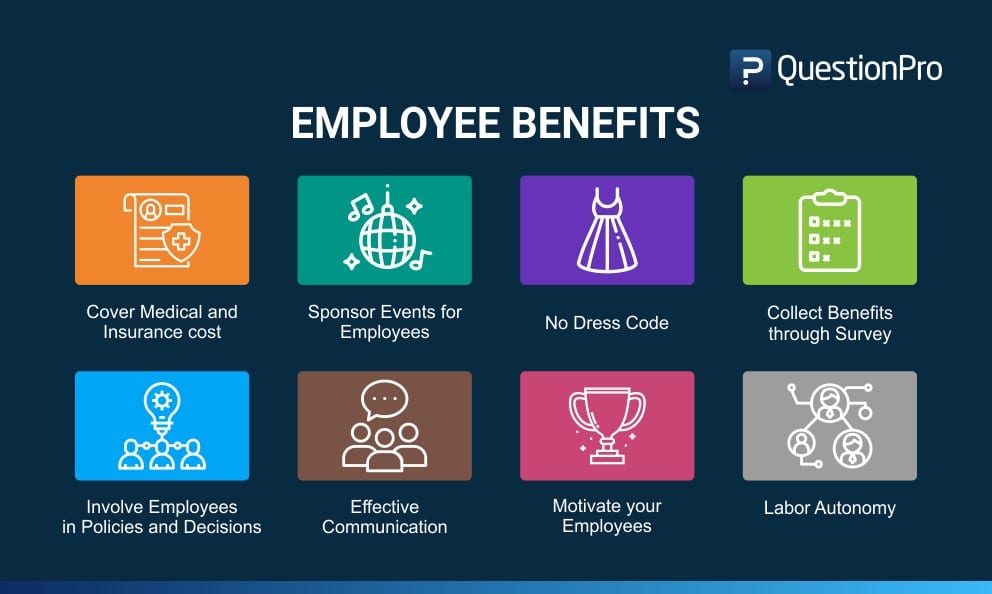Why Part-Time Employees Enjoy Better Overall Wellbeing
Research has consistently shown that part-time employees tend to experience improved mental health and wellbeing compared to their full-time counterparts. One of the primary reasons for this correlation is the reduced stress levels associated with part-time work. With a more manageable workload and increased flexibility, part-time employees are better equipped to handle the demands of their job without feeling overwhelmed. This, in turn, can lead to increased job satisfaction and a greater sense of control over their work-life balance.
A better work-life balance is a critical factor in overall wellbeing, as it allows individuals to prioritize their physical and mental health. Part-time employees often have more time to engage in activities that bring them joy and fulfillment, such as exercise, hobbies, or spending time with loved ones. This increased free time can also enable part-time employees to pursue personal development opportunities, such as learning a new skill or volunteering, which can further enhance their sense of purpose and wellbeing.
In addition to the benefits of reduced stress and increased flexibility, part-time employees may also experience improved physical health. With more time available for self-care and relaxation, part-time employees may be more likely to prioritize healthy habits, such as regular exercise, healthy eating, and adequate sleep. This, in turn, can lead to a range of physical health benefits, including reduced blood pressure, improved cardiovascular health, and a stronger immune system.
Furthermore, part-time employees may also experience financial benefits that can contribute to their overall wellbeing. With reduced childcare costs and increased flexibility to pursue additional income streams, part-time employees may be better equipped to manage their finances and achieve a sense of financial security. This can lead to reduced financial stress and increased peace of mind, which can have a positive impact on both mental and physical health.
Overall, the health benefits for part-time employees are numerous and well-documented. By reducing stress levels, increasing flexibility, and improving work-life balance, part-time employment can have a positive impact on both mental and physical health. As the modern workforce continues to evolve, it is likely that part-time employment will become an increasingly popular option for individuals seeking to prioritize their wellbeing and achieve a better quality of life.
How to Boost Your Physical Health with a Part-Time Schedule
Part-time employees often have more flexibility in their schedules, which can be a significant advantage when it comes to prioritizing physical activity. With more time available during the day, part-time employees can take advantage of opportunities to exercise, such as going for a walk or jog during their lunch break, or visiting the gym before or after work. This increased flexibility can also enable part-time employees to engage in outdoor activities, such as hiking or biking, which can be beneficial for both physical and mental health.
In addition to exercising during the day, part-time employees can also use their flexible schedules to prioritize healthy habits, such as meal planning and preparation. By having more time available during the day, part-time employees can prepare healthy meals and snacks, which can help to support their physical health and wellbeing. This can be especially beneficial for part-time employees who may have previously relied on convenience foods or takeout due to their busy schedules.
Another way that part-time employees can boost their physical health is by using their flexible schedules to get enough sleep. Adequate sleep is essential for physical and mental health, and part-time employees can use their schedules to establish a consistent sleep routine. This can involve avoiding screens before bedtime, creating a relaxing bedtime routine, and establishing a consistent sleep schedule. By prioritizing sleep, part-time employees can help to support their physical health and wellbeing.
Part-time employees can also use their flexible schedules to engage in activities that promote physical health, such as yoga or meditation. These activities can help to reduce stress and improve overall wellbeing, and can be especially beneficial for part-time employees who may be experiencing high levels of stress or anxiety. By incorporating these activities into their daily routines, part-time employees can help to support their physical health and wellbeing.
Overall, part-time employees have a range of opportunities to boost their physical health, from exercising during the day to prioritizing healthy habits and getting enough sleep. By taking advantage of these opportunities, part-time employees can help to support their physical health and wellbeing, and can enjoy the many health benefits for part-time employees.
The Benefits of Increased Free Time for Part-Time Workers
One of the most significant advantages of part-time employment is the increased amount of free time that it provides. With a more flexible schedule, part-time employees can pursue hobbies and interests that they may not have had time for otherwise. This can include activities such as painting, playing music, or writing, which can help to foster creativity and self-expression.
In addition to pursuing hobbies, part-time employees can also use their free time to spend with loved ones. This can include activities such as going on vacation, trying new restaurants, or simply spending quality time with family and friends. By having more time available, part-time employees can strengthen their relationships and build stronger bonds with those around them.
Part-time employees can also use their free time to engage in personal development activities. This can include taking courses or attending workshops to learn new skills, or reading books and articles to stay up-to-date on industry trends. By investing in their personal and professional development, part-time employees can increase their confidence and self-esteem, and improve their overall wellbeing.
Furthermore, part-time employees can use their free time to pursue activities that promote relaxation and stress relief. This can include activities such as yoga, meditation, or deep breathing exercises, which can help to reduce stress and anxiety. By prioritizing relaxation and self-care, part-time employees can improve their mental health and wellbeing, and reduce their risk of burnout.
Overall, the increased free time that part-time employment provides can have a significant impact on overall wellbeing. By pursuing hobbies, spending time with loved ones, engaging in personal development activities, and prioritizing relaxation and self-care, part-time employees can improve their physical and mental health, and enjoy the many health benefits for part-time employees.
It’s worth noting that the benefits of increased free time can vary depending on the individual and their circumstances. However, for many part-time employees, the extra time and flexibility can be a game-changer for their overall wellbeing. By prioritizing their health and happiness, part-time employees can enjoy a better work-life balance and improve their overall quality of life.
Improving Sleep Patterns with a Part-Time Work Arrangement
Sleep is a critical component of overall health and wellbeing, and part-time employees can benefit from improved sleep patterns due to their flexible schedules. Adequate sleep is essential for physical and mental health, as it allows the body to rest and recover from the stresses of the day. During sleep, the body repairs and regenerates tissues, builds bone and muscle, and strengthens the immune system.
Part-time employees can establish a consistent sleep schedule by creating a relaxing bedtime routine and avoiding screens before sleep. This can include activities such as reading a book, taking a warm bath, or practicing gentle stretches. By winding down before bed, part-time employees can improve the quality of their sleep and wake up feeling rested and refreshed.
In addition to establishing a consistent sleep schedule, part-time employees can also improve their sleep patterns by creating a sleep-conducive environment. This can include making the bedroom a sleep sanctuary, free from distractions and electronic devices. By creating a dark, quiet, and cool sleep environment, part-time employees can improve the quality of their sleep and wake up feeling rested and refreshed.
Furthermore, part-time employees can also improve their sleep patterns by avoiding stimulating activities before bedtime. This can include avoiding caffeine, nicotine, and electronic devices, which can interfere with sleep. By avoiding these stimulating activities, part-time employees can improve the quality of their sleep and wake up feeling rested and refreshed.
Overall, improving sleep patterns is essential for overall health and wellbeing, and part-time employees can benefit from improved sleep patterns due to their flexible schedules. By establishing a consistent sleep schedule, creating a sleep-conducive environment, and avoiding stimulating activities before bedtime, part-time employees can improve the quality of their sleep and wake up feeling rested and refreshed. This can have a significant impact on their overall wellbeing, and can contribute to the many health benefits for part-time employees.
It’s worth noting that the benefits of improved sleep patterns can vary depending on the individual and their circumstances. However, for many part-time employees, improved sleep patterns can have a significant impact on their overall wellbeing and quality of life. By prioritizing sleep and making it a priority, part-time employees can improve their physical and mental health, and enjoy the many benefits of part-time employment.
Nutrition and Meal Planning for Part-Time Employees
Part-time employees often have more flexibility in their schedules, which can be a significant advantage when it comes to prioritizing nutrition and meal planning. With more time available during the day, part-time employees can focus on preparing healthy meals and snacks, which can help to support their physical and mental health.
One of the most effective ways to prioritize nutrition and meal planning is to batch cook and meal prep. This involves preparing large quantities of food in advance, which can then be portioned out and reheated as needed. By batch cooking and meal prepping, part-time employees can save time and money, while also ensuring that they are eating healthy and nutritious meals.
Another way to prioritize nutrition and meal planning is to focus on whole, unprocessed foods. This includes foods such as fruits, vegetables, whole grains, and lean proteins, which are rich in nutrients and can help to support overall health and wellbeing. By incorporating these foods into their diets, part-time employees can improve their physical and mental health, and reduce their risk of chronic diseases.
In addition to batch cooking and meal prepping, part-time employees can also prioritize nutrition and meal planning by avoiding unhealthy snacks and meals. This includes foods such as sugary drinks, fast food, and processed snacks, which are high in calories and low in nutrients. By avoiding these foods, part-time employees can improve their overall health and wellbeing, and reduce their risk of chronic diseases.
Furthermore, part-time employees can also prioritize nutrition and meal planning by staying hydrated. This involves drinking plenty of water throughout the day, which can help to support physical and mental health. By staying hydrated, part-time employees can improve their focus and productivity, while also reducing their risk of chronic diseases.
Overall, prioritizing nutrition and meal planning is essential for part-time employees who want to improve their physical and mental health. By batch cooking and meal prepping, focusing on whole, unprocessed foods, avoiding unhealthy snacks and meals, and staying hydrated, part-time employees can improve their overall wellbeing and reduce their risk of chronic diseases. This can have a significant impact on their quality of life, and can contribute to the many health benefits for part-time employees.
Reducing Financial Stress as a Part-Time Employee
Part-time employment can have a significant impact on financial stress levels, particularly for those with family or childcare responsibilities. One of the main financial benefits of part-time employment is the reduced cost of childcare. With a more flexible schedule, part-time employees can often care for their children themselves, reducing the need for expensive childcare services.
In addition to reduced childcare costs, part-time employees may also have more flexibility to pursue additional income streams. This can include freelancing, consulting, or starting a small business, which can help to supplement their part-time income and reduce financial stress. By having more control over their schedule, part-time employees can also better manage their finances and make more informed decisions about their money.
Another way that part-time employees can reduce financial stress is by creating a budget and sticking to it. This can involve tracking expenses, cutting back on non-essential spending, and prioritizing needs over wants. By taking control of their finances, part-time employees can reduce their financial stress levels and improve their overall wellbeing.
Furthermore, part-time employees can also reduce financial stress by taking advantage of employee benefits and perks. This can include benefits such as health insurance, retirement plans, and paid time off, which can help to reduce financial stress and improve overall wellbeing. By taking advantage of these benefits, part-time employees can improve their financial security and reduce their stress levels.
Overall, part-time employment can have a significant impact on financial stress levels, particularly for those with family or childcare responsibilities. By reducing childcare costs, pursuing additional income streams, creating a budget, and taking advantage of employee benefits, part-time employees can reduce their financial stress levels and improve their overall wellbeing. This can have a significant impact on their quality of life, and can contribute to the many health benefits for part-time employees.
It’s worth noting that the financial benefits of part-time employment can vary depending on the individual and their circumstances. However, for many part-time employees, the reduced childcare costs, increased flexibility, and improved financial security can have a significant impact on their financial stress levels and overall wellbeing.
Building Resilience and Coping Mechanisms as a Part-Time Worker
Part-time employees often face unique challenges, such as managing multiple responsibilities, dealing with uncertainty, and navigating complex work arrangements. To thrive in these situations, it’s essential to build resilience and develop effective coping mechanisms. Resilience is the ability to bounce back from adversity, and it’s a critical component of overall wellbeing.
One way to build resilience is to practice mindfulness. Mindfulness involves being present in the moment, without judgment, and it can help to reduce stress and increase focus. Part-time employees can practice mindfulness by taking a few minutes each day to breathe deeply, focus on their surroundings, and let go of distractions.
Another way to build resilience is to develop stress-reducing techniques. This can include activities such as exercise, meditation, or yoga, which can help to reduce stress and increase feelings of calm. Part-time employees can also develop stress-reducing techniques by learning to prioritize tasks, set boundaries, and take breaks when needed.
In addition to building resilience, part-time employees can also prioritize self-care. Self-care involves taking care of one’s physical, emotional, and mental health, and it’s essential for overall wellbeing. Part-time employees can prioritize self-care by getting enough sleep, eating a healthy diet, and engaging in activities that bring them joy and relaxation.
Furthermore, part-time employees can also seek support when needed. This can include talking to a therapist, joining a support group, or reaching out to friends and family members. By seeking support, part-time employees can build a network of people who can help them navigate challenges and provide emotional support.
Overall, building resilience and coping mechanisms is essential for part-time employees who want to thrive in their roles. By practicing mindfulness, developing stress-reducing techniques, prioritizing self-care, and seeking support when needed, part-time employees can build the resilience they need to succeed. This can have a significant impact on their overall wellbeing, and can contribute to the many health benefits for part-time employees.
It’s worth noting that building resilience and coping mechanisms takes time and practice. Part-time employees should be patient with themselves and remember that it’s okay to make mistakes. By taking small steps each day, part-time employees can build the resilience they need to succeed and enjoy the many benefits of part-time employment.
Creating a Supportive Network as a Part-Time Employee
Having a supportive network is essential for part-time employees who want to thrive in their roles. A supportive network can include colleagues, friends, and family members who can provide emotional support, practical help, and valuable advice. By building a supportive network, part-time employees can reduce stress, improve their mental health, and increase their overall wellbeing.
One way to build a supportive network is to nurture relationships with colleagues. This can involve attending team-building events, participating in workplace social activities, and simply taking the time to get to know colleagues on a personal level. By building strong relationships with colleagues, part-time employees can create a sense of belonging and connection, which can be essential for their mental health and wellbeing.
In addition to nurturing relationships with colleagues, part-time employees can also build a supportive network by reaching out to friends and family members. This can involve scheduling regular check-ins, sharing personal struggles and successes, and simply being there for one another. By building a supportive network of friends and family members, part-time employees can reduce stress, improve their mental health, and increase their overall wellbeing.
Furthermore, part-time employees can also seek support from online communities and forums. These can provide a safe and supportive space to connect with others who are facing similar challenges and struggles. By seeking support from online communities and forums, part-time employees can build a supportive network that is available 24/7.
Overall, building a supportive network is essential for part-time employees who want to thrive in their roles. By nurturing relationships with colleagues, reaching out to friends and family members, and seeking support from online communities and forums, part-time employees can reduce stress, improve their mental health, and increase their overall wellbeing. This can have a significant impact on their quality of life, and can contribute to the many health benefits for part-time employees.
It’s worth noting that building a supportive network takes time and effort. Part-time employees should be patient and persistent in their efforts to build a supportive network, and should not be afraid to reach out for help when needed. By building a supportive network, part-time employees can create a sense of belonging and connection that is essential for their mental health and wellbeing.







